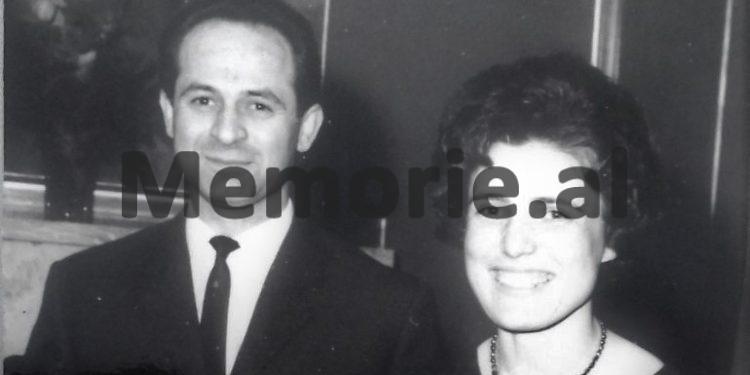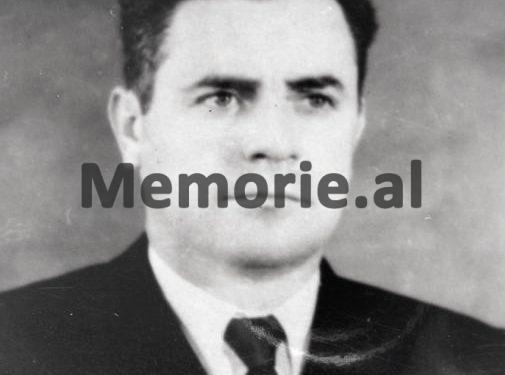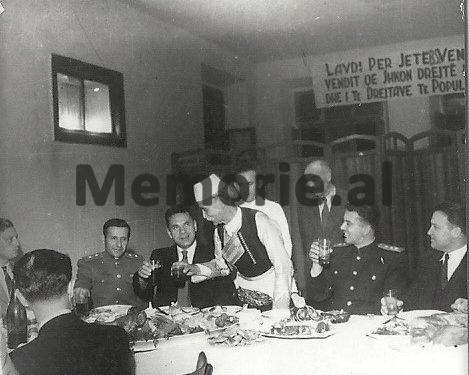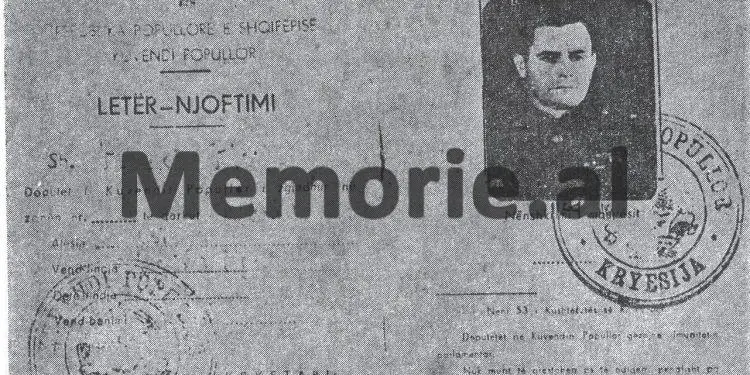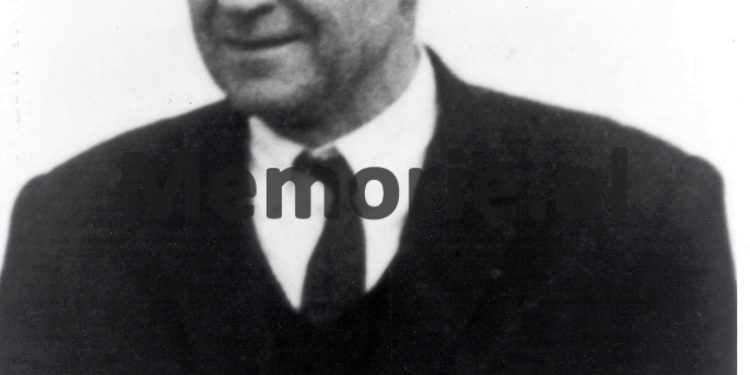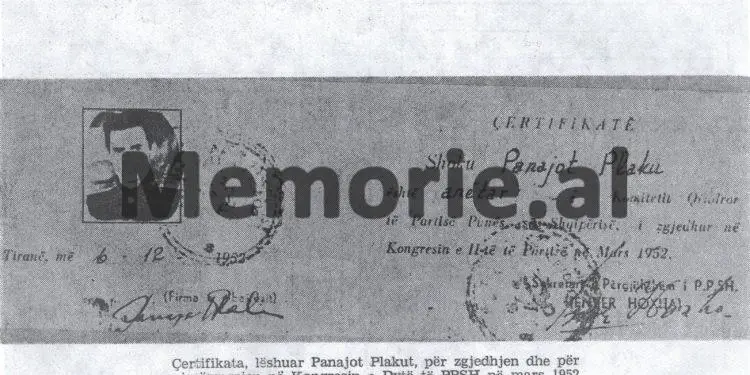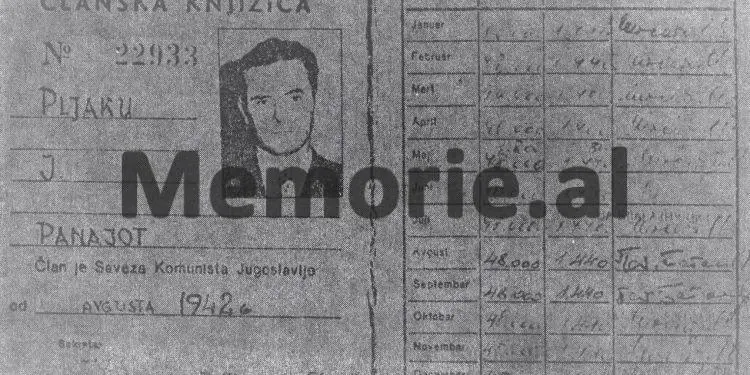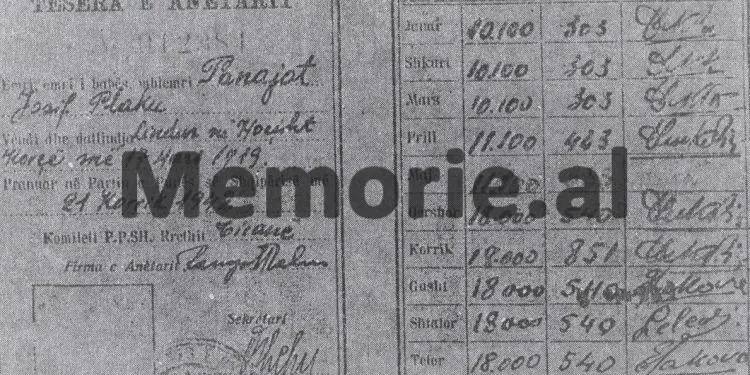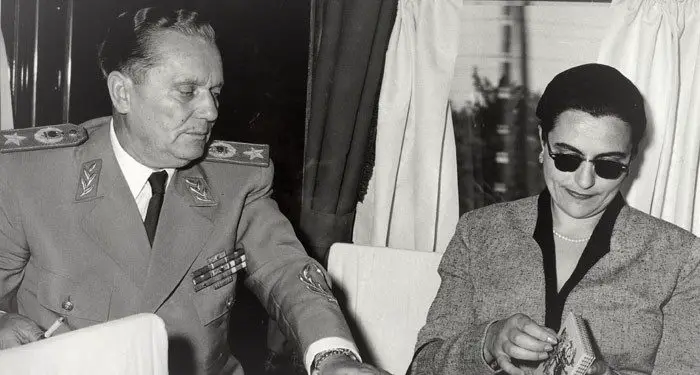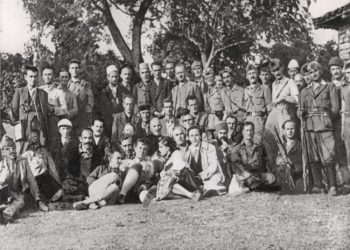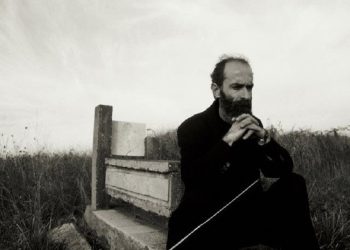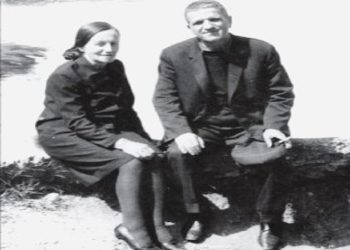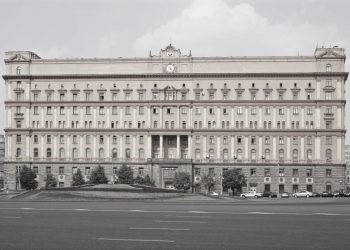Dashnor Kaloçi
Memorie.al publishes the unknown story of Major General Panajot Plakut, originally from the village of Hoçisht in Devoll, Korça, who after graduating from the “Normal” school in Elbasan in 1936, returned to the city of Korça where he joined groups. communist and during the occupation of the country 1939-1944, he joined the Anti-Fascist Movement and for his activity was arrested and imprisoned by the Italian authorities in the city of Durres and after his release, he joined the partisan ranks, being appointed deputy commissioner of the First Assault Brigade commanded by Mehmet Shehu, since its formation in August 1943, in the village of Vidhkuq in Korça. How Panajot Plaku climbed the military career ladder after the end of the War, starting from Commissar and Division Commander in Korça District, Corps Commander, Director of Operational Directorate and Deputy Chief of General Staff of the Albanian Army in the Ministry of People’s Defense with rank the major general, to the post of minister without portfolio in the government headed by Mehmet Shehu? How could Panajot Plaku escape from Albania in June 1957 (when he was Minister without Portfolio and Chairman of the State Committee for Geology) secretly crossing the state border near Lake Pogradec and leaving for Yugoslavia, where he settled in Belgrade as a political asylum and sent a letter to the leader of the Soviet Union, Nikita Khrushchev, denouncing all the crimes of Enver Hoxha and his regime?! The mystery of the death of Panajot Plaku in 1966 in the hotel where he lived in Belgrade, what he wrote in his memoirs about Enver Hoxha and the senior leadership of the ALP which were published immediately after his death in Belgrade in the book entitled ” Violence over the revolution in Albania”, a book that was later published in Prishtina in 1971?
“Thus, in the Central Committee of the Albanian Labor Party, large kin groups were formed, among which one of the most characteristic groups is undoubtedly this: Vito Kapo, candidate for member of the Central Committee of the ALP, president of FGA ( Antifascist Women’s Forum), her husband, Hysni Kapo, member of the Politburo, second secretary of the Central Committee, his wife’s brother, Pirro Kondi, member of the Central Committee, Pirro Kondi’s brother, Sadik Bekteshi, member of the Central Committee, Sadik Bekteshi’s son-in-law, Manush Myftiu, member of the Politburo and Deputy Prime Minister, Manushi’s son-in-law, Pilo Peristeri, candidate for member of the Politburo, Pilo’s son-in-law, Rita Marko, member of the Politburo and Secretary of the Committee Central, etc.
Some generals, assistant ministers, ambassadors, etc. were even more associated with such kinship dances. But counting their reciprocal links would take us far. But in essence, the circle does not close this way. Members and candidates for members of the Political Bureau of the ALP, live in the so-called “Block” which is known as “New Tirana” and is located in the center of the city. Within the “Block” are villas surrounded by lush gardens and this whole part, which reminds you of a military zone, is full of inscriptions that read: “Entry is prohibited.” Around the district are quite rare barracks of guards and many guards-guards, who walk with automatic weapons on their chests, to ensure compliance with the orders written on the boards. At night, the number of guards is greater.
From the “Block” you enter directly into the building of the Central Committee. The building itself is designed in function of the hierarchy of senior leadership and with the distrust that reigns there, there are four entrances: for members and candidates of the Politburo, for members and candidates of the Central Committee, for officials and officials of the Central Committee and last, for the staff serving there. All entrances are strictly controlled by the State Security, whose members carefully control that no member of the Central Committee enters or leaves the entrance designated for members of the Politburo, except when he is accompanied by any of the members of the Bureau. At the end of the area, there is a special health institution for senior management, then the nursery for leadership children and their adult school.
In that area is also the “Party House”, in which there is a cinema, games room and rich buffet, where you do not pay for the things you eat and drink. In the “Block” there are also two shops: one for the members and candidates of the Politburo and the other for the members and candidates of the Central Committee. The assortment in them is good and there is a lot of foreign goods, both socialist and capitalist, and the prices are much lower than in the city and are determined based on the privileges enjoyed by different categories of buyers. . Such a “Block” also exists on the beach of Durres, with a special area where most of the senior leadership of the ALP, spends most of the year there on vacation. The members of the Central Committee, not only do not pay rent, but also have a whole staff at their service.
However, a directive of the Politburo forbids all leaders, members of the Central Committee and the government, to appear informally to the people, to walk in the streets of Tirana and everywhere in Albania. They are allowed to drive only in automobiles and always accompanied by their guards, who perform a dual task: to guard the leaders, and even more, to control their every move. Thus the circle closes mercilessly. The isolation in which Albanian society has fallen today is complete. This is, first of all, a political isolation, but at the same times a physical isolation of the high leadership of the people of Albania. “The physical liquidation of the best people of the revolution, the mass terror, the setting up of residence camps, the enormous increase of the bureaucratic-police and military apparatus, these are undoubtedly the concrete results of the worst of the beginning of Stalinism in my country.” .
This is written, among other things, in the memoirs of Major General Panajot Plakut, the former Minister without Portfolio of the Albanian government headed by Mehmet Shehu and a member of the Central Committee of the ALP, who fled Albania in May 1957 and settled in Yugoslavia, where he also gained political asylum, from where he later wrote a long letter to the leader of the Soviet Union, Nikita Khrushchev, in which he ruthlessly denounced all state violence of the communist regime in Tirana, the monstrous crimes of Enver Hoxha in the elimination of his collaborators, the intrigues, privileges and nepotism of the senior leadership who lived in the villas of the “Bloc”, etc., etc.
Also in that long letter written on June 15, 1957, the former minister, Major General Panayot Plaku, (who graduated from the Voroshilov Military Academy of the Soviet Union in the early 1950s), explains to the head of the Kremlin, Nikita Khrushchev, all the reasons that forced him to flee Albania, starting with the State Security pursuit that had recently poisoned his brother, Kalo Plaku, (director of the Farm Agricultural of Sukth), a murder which was committed with the direct approval of Enver Hoxha and his close associates, who in the years of the War, had also shot his other brother: Jorgo Plakun!
Who was Panajot Plaku, what was his origin and past, where did he study and how did he climb the career ladder, starting from the period of the Antifascist War where he was deputy commissioner of the First Assault Brigade (commanded by Mehmet Shehu) Commissar and Commander of the Division in the Korça District, Commander Corps, Director of the Operational Directorate and Deputy Chief of the General Staff of the Albanian Army in the Ministry of National Defense with the rank of Major General, to the post of Minister without Portfolio in the government which was headed by Mehmet Shehu in the years 1956-1957?
Why from the period of the end of the War until he escaped in 1957, Panajot Plaku was constantly accompanied by: Omer Nishani, (President of Albania who committed suicide in 1955) Dali Ndreun, (former Deputy Chief of General Staff with the rank of major general shot in 1957) Teme Sejkon, (Rear Admiral of the Albanian Navy, died in torture in 1961, after being sentenced to death), Tahir Kadarena (major general imprisoned for years as “enemy of the people”), Maqo Çomon (former Minister of Agriculture, politically imprisoned for 25 years), Rrahman Përllaku, (Major General, ‘People’s Hero’, former Deputy Minister of National Defense), who how by fatal coincidence, years later they would be shot, imprisoned in the horrible Burrell prison, from where they would be released only until 1991, with the collapse of the communist regime ?!
Why, when Stalin died in March 1953, did Panayot stop his family members from crying, saying, “He lived as long as he wanted, what is there to cry about”?! Where and how could Panajot Plaku escape from Albania at a time when he was regularly monitored by the State Security and who forced his mother, Kostandina, to sign the public statement that was published in the press (“Zeri i Popullit” newspaper) where she had “cursed” her son? How was the Panajot family persecuted, starting with the mother, Kostandina, the sisters Meri and Theodhora (Lola Katragjini), the wife, Vjollca Plaku (Taja) and the three children, Donika, Besnik and Kristaqi? Why the leader of the Soviet Union, Nikita Khrushchev, asked Enver Hoxha to reconsider his attitude towards Panayot the Elder, and why Enver responded to him, saying: “Not only will we not rehabilitate Panayot the Elder, but bring him to us here, to hang him in the middle of Tirana “?! What did Panajot Plaku deal with during his stay as a political asylum seeker in Yugoslavia, and did the State Security have a hand in his death in July 1966?
Regarding these and many other facts and events from the life of Panajot Plaku, we will be known in several articles that we have prepared from the exclusive testimonies of his family, as well as the memories he left written during the period he lived in Belgrade, which were published in the book entitled “Violence over the revolution in Albania”, first published in Belgrade after his death and then in Pristina in 1971.
The letter that Enver’s former minister, Major General Panayot Plaku, sent to Soviet leader Nikita Khrushchev in 1957
First Secretary of the Communist Party of the Union of Soviet Socialist Republics, Comrade Nikita Sergeyevich Khrushchev
I, the signatory, Panajot Plaku, former minister without portfolio in the government of the People’s Republic of Albania and member of the Central Committee of the Albanian Labor Party, who crossed the state border of Albania on the night between 15 and 16 May this year and have seeking asylum in the Federal Republic of Yugoslavia, I address you with this request.
I started my revolutionary activity at the end of 1936, as a seventeen-year-old boy, when there were only isolated communist groups in Albania. At that time I was associated with the Communist Group in Korça. Until the formation of the Communist Party of Albania, I took a limited part in the war against the Zog regime. I hated fascism before the occupation, and even earlier after the occupation.
I took an active part in the demonstrations, which were organized at the time of the Italian aggression and, together with the students of the ‘Normale’ high school in Elbasan, where I studied at that time; I made efforts to provide weapons in order to fight against the occupier. . I never agreed with the fascist policy in Albania and I participated in all anti-fascist actions even before our Party was formed.
After the formation of our Party, I was a participant in the first ranks of illegal fighting in Durrës and I took an active part in all anti-fascist actions, which were organized by the Party organization in Durrës. I helped organize the anti-fascist demonstration, which took place on April 14, 1942 in Durrës and I was in its front ranks, for which reason I was arrested and imprisoned, where I remained for more than three and a half months.
In prison I had a strong attitude. Immediately after my release from prison I was admitted to the Party, and a few days later I went underground, since in August 1942, the fascists imprisoned my whole family, because my older brother, Jorgo Plaku (who later was bravely killed in the National Liberation War) was a partisan and commander of the newly formed partisan platoon in Devoll in the Korça region.
After consulting with my friends in the Party Regional Committee in Durrës, I myself went to the Devoll partisan gang. It is worth mentioning that at that time in Albania, there were very few partisan detachments, mainly in the region of Peza, Korça, Vlora and Gjirokastra.
During the war I was a good partisan, I took part in several dozen combat actions and I fought well. I was not only personally a brave warrior, but also a very good leader. Throughout the war, I never left the units I was in.
I have performed various duties, from the platoon commissar to the deputy commissar of the Division. From 1948 to 1950, I graduated from the Voroshilov High Military Academy in Moscow.
After returning to Albania, I was the division commander, chief of the Operational Directorate of the Ministry of People’s Defense, corps commander, first deputy minister and chief of the Political Directorate of the Ministry of People’s Defense, and recently I was minister without portfolio and chairman of the State Committee for Geology.
Throughout my party life, I have never strayed from the general line of the Party and have always been considered a good Party worker. In the Second Congress I was elected a member of the Central Committee, and also in the Third Congress.
When I was quite young, although it was forbidden to even mention the Soviet Union, I was interested in Soviet life and, being interested in friends in the Communist Group of Korça, I was informed about it. I have always listened to Radio Moscow shows, risking arrest for this reason.
From the first moment of the Nazi attack on the Soviet Union, I tried to harm fascism by risking my life, in order to liberate my people from fascist oppression and to help the Soviet Union. I have made relentless efforts to convince the partisans and the people that the Soviet Union is our sure support.
I was convinced that my rifle, like all partisan rifles, protects the people and, at the same time, contributes to the liquidation of fascism, thus facilitating the war of the Soviet Union. When I did not separate the war and the work of the people of Albania from the Soviet Union, which was and is the most important factor of liberation and development of the people of Albania.
My whole family and all members of my family have taken an active part in the liberation war and in building socialism. Of my relatives today are communist’s brother and sister, besides me and two brothers who have been killed. Among my cousins are several dozen communists, most of whom were admitted to the Party during the war…! /Memorie.al
Who was Panajot Plaku?
- He was born in the village of Hoçisht of Devoll, district of Korça.
- Graduated from the ‘Normale’ school of Elbasan.
- Member of the Communist group of Korça.
- Arrested by the Italians and imprisoned for three months in Durrës.
- Deputy Commissar of the First Assault Brigade.
- His brother, Jorgo Plaku, a partisan in Korça, is executed.
- Commander and Commissar of the Division in Korça.
- At the Voroshilov Military Academy in Moscow.
- Director of the Operational Directorate at the Ministry of Defense,
- Corps Commander, First Deputy Minister of the Ministry of Defense.
- Minister without Portfolio and Chairman of the Committee on Geology.
- Security poisons his brother, Kalo Plakun, farm director in Sukth.
- Flees Albania and receives political asylum in Yugoslavia.
- Writes a letter to Khrushchev denouncing Enver’s crimes.
- Dies under unknown circumstances in a Belgrade hotel.
- The other brother, Koço Plaku, an oil engineer, is executed.
- His family returns to Durrës after 34 years of exile.
The next issue follows




